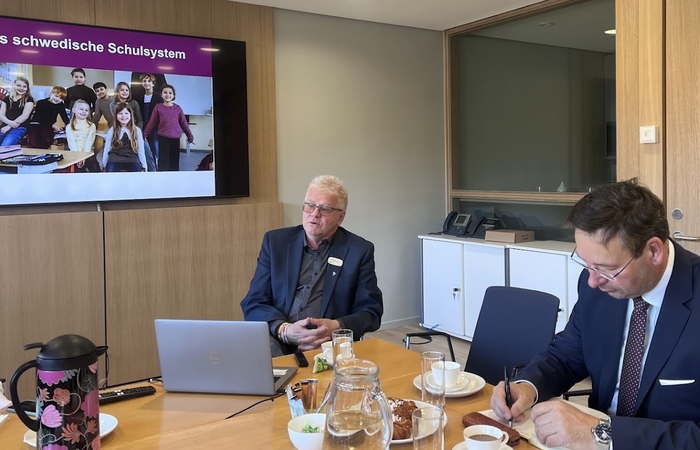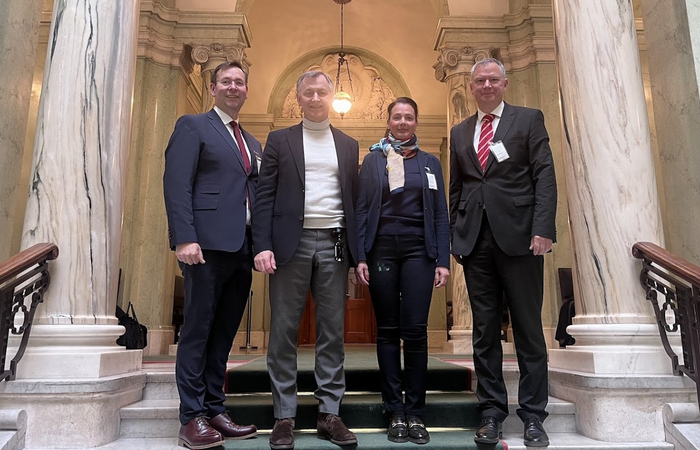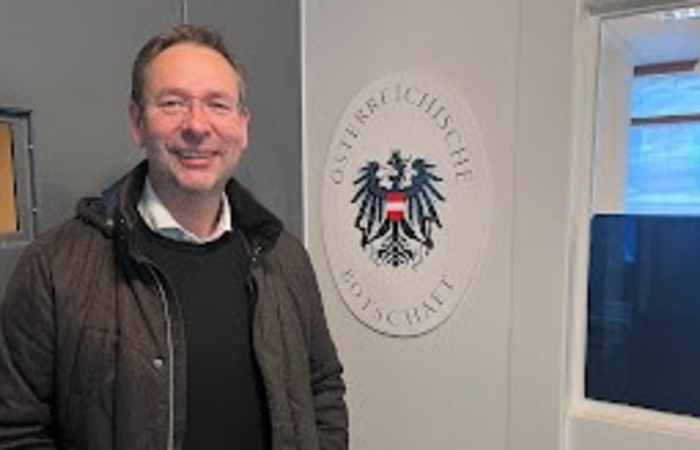The Education and School System in Schweden and Finland
Educational Trip to Scandinavia
The Political Academy of the Freedom Party of Austria organised an educational trip to Scandinavia that took place from 21-25 April 2024. Among those who took part were the FPÖ Spokesman for Education and Member of the National Council Hermann Brückl, MA, Dipl.-Ing. Mag. Walter Asperl, Advisor for Education in the FPÖ parliamentary party and the psychologist Mag. Katayun Pracher-Hilander.
In Stockholm, a meeting and exchange of views took place with the Deputy Head of Mission at the Austrian Embassy in Stockholm Johannes Högl as well with Jörgen Grubb who is a member of the Swedish parliament where he serves on the Education Committee. In a direct dialogue, he provided insights into the demands and challenges in the Swedish education sector. One of the topics discussed was the rapid digitalisation of teaching and the reversal of this strategy that has now been initiated by the new government and which is widely supported by the population. An evaluation of the measures and their impact on pupils is still pending. Overall, there was a detailed exchange of ideas about Sweden’s education system from a political perspective.
The next day’s programme included a meeting with Ambassador Mag. Doris Danler at the Austrian Embassy. After a general exchange, Mr Bosse Andersson from Stockholm’s Education Department gave an introduction to the Swedish education system and its special features. Mr Andersson, who for many years worked as a teacher and school head, covered a spectrum ranging from direct practice to school management. He too identified positive effects as a result of banning mobile phones from the classroom; it is up to headteachers how they implement the ban. The Austrian visitors also heard about the national examinations that are taken every three years by students in the third, sixth and ninth grades and the discrepancy between the results of these exams and students’ school grades.
On 24 April 2024 in Helsinki the delegation met the Director of International Affairs of the Finnish National Agency für Education, Mr. Samu Seitsalo, who provided a wide-ranging introduction to the Finnish school system, which is at the top of many rankings or certainly among the front-runners. However, a deterioration has been observed here, especially in terms of PISA scores, which can be attributed to migration levels. To counter this, a pilot project has been launched with a two-year period of pre-school education and an increased number of lessons in the core subjects.
This was followed by an exchange with Dr. Marjo Kyllönen, Development Services Director, Education Divisions, City of Helsinki, who also provided insights into the education system. In Finland, as in Sweden, schools fall within the remit of the municipalities. The problems associated with migration in the education system were also discussed at this meeting.
In addition, the programme included an exchange of ideas with representatives of the Austrian embassy in Finland. After a welcome address by Ambassador Dr. Herbert Pichler, Deputy Head of Mission Johannes Joseph Bauernfeind shared his experiences with the Finnish school system which was followed by a discussion and comparison with the Austrian education system.




